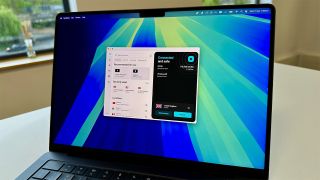Explore Internet
Latest about Internet

Best VPN deals in February 2026
By Mo Harber-Lamond last updated
Don't want to pay full price for a VPN? I've rounded up the best VPN deals from the likes of NordVPN, ExpressVPN, PureVPN, Surfshark, and more.

This VPN solved my Super Bowl streaming stumbling block – and it's never been cheaper
By George Phillips published
You can stream the Super Bowl and secure your data thanks to ExpressVPN's limited-time February deal. At $2.44 per month, it's the cheapest it has ever been.

Surfshark's new feature makes internet searching safer – here's what you need to know
By Andreas Theodorou published
Surfshark's new feature for its browser extension now includes data breach and malware alerts to make it easier for users to spot dangerous websites

ExpressVPN review
By Michael Simon last updated
VPN In our complete ExpressVPN review, we run down this well-known VPN's features, apps and performance, and give our unbiased opinion of the service.

The best VPN in 2026: our top 5 picks
By Mo Harber-Lamond last updated
We've tested and reviewed dozens of VPN. On this page we've ranked the five best VPNs we've used, and delve into the details of why they're so good.

Total phone hijack: New Hugging Face malware grants hackers full remote access
By Scott Younker last updated
Hugging Face may be hosting a fake app that is being used to send out Android malware.

Grab antivirus for $0.30 per month with Surfshark's limited time deal
By George Phillips published
Surfshark's limited time February deal sees its antivirus available for just $0.30 per month. Pick up the best cheap VPN plus antivirus before it's gone.

We surveyed Tom's Guide readers about their free VPN use – and the results surprised us
By George Phillips published
We completed a survey of Tom's Guide readers and their free VPN usage. With 24% using one for streaming, and 15% for avoiding censorship, the results surprised us.
Here at Tom’s Guide our expert editors are committed to bringing you the best news, reviews and guides to help you stay informed and ahead of the curve!
 Club Benefits
Club Benefits







